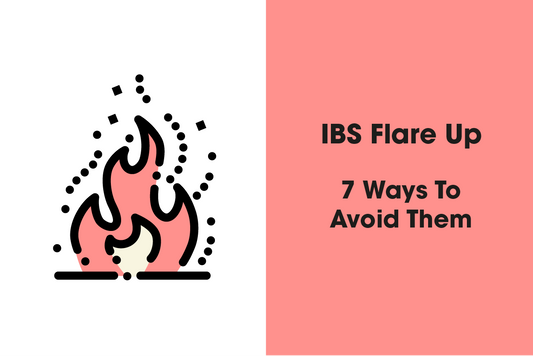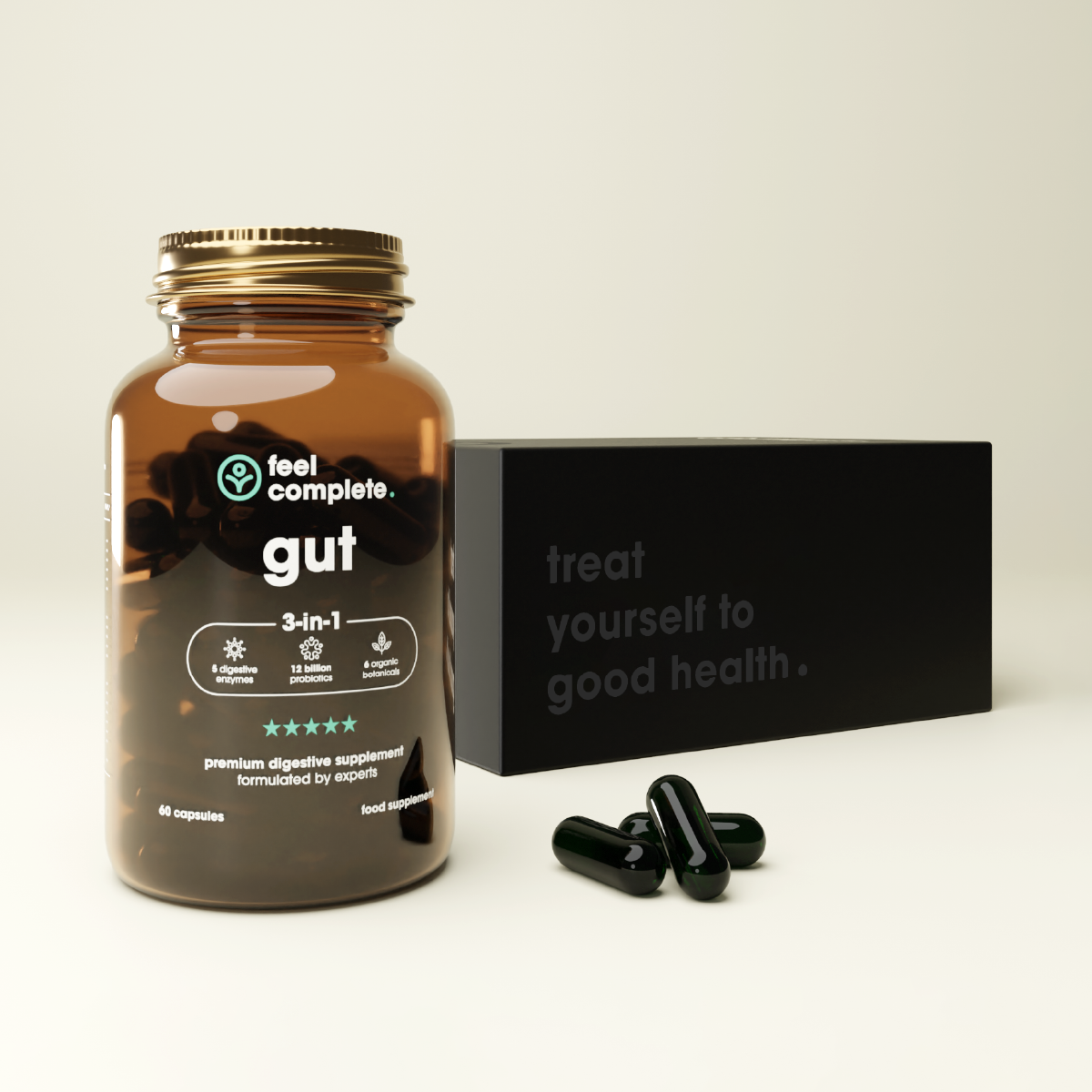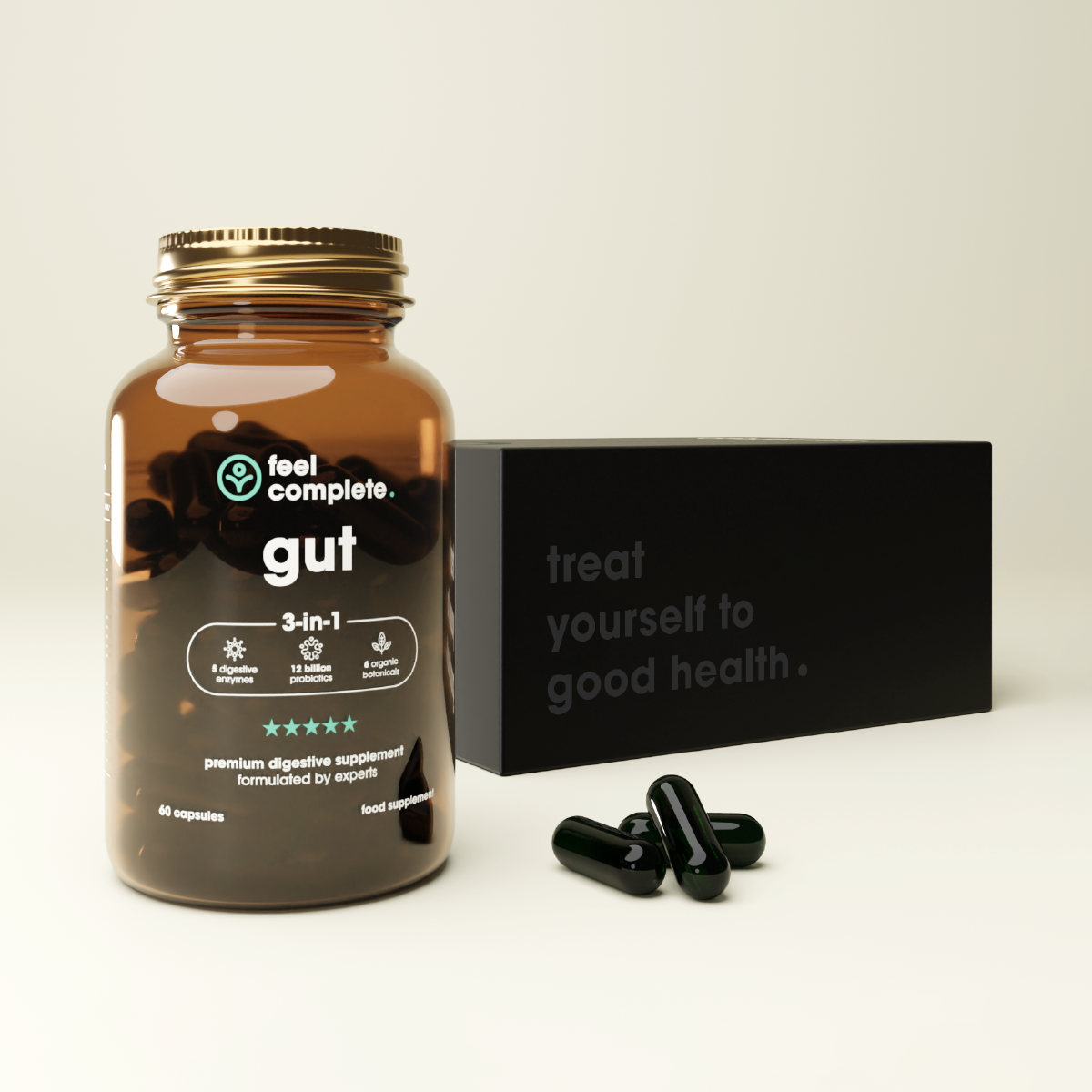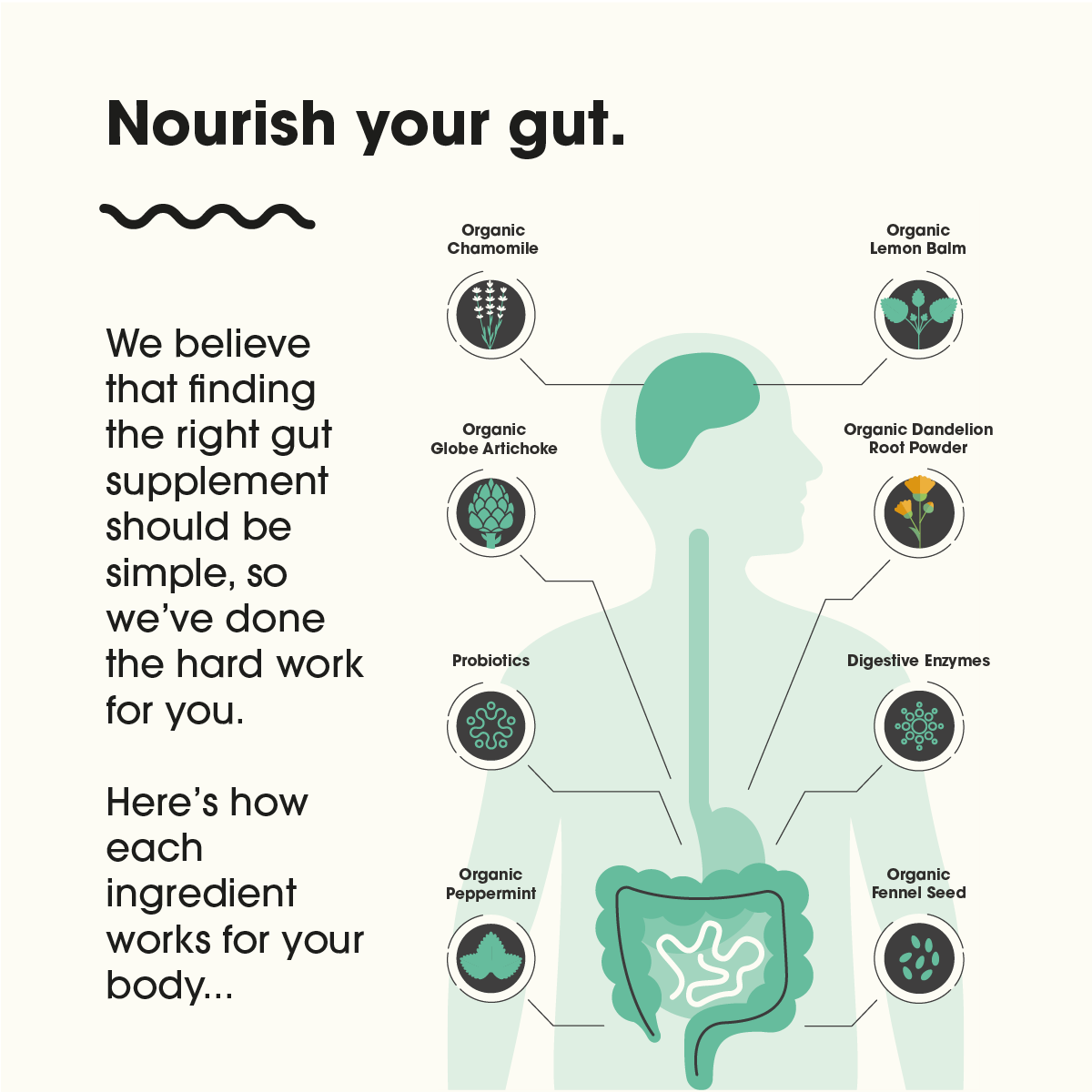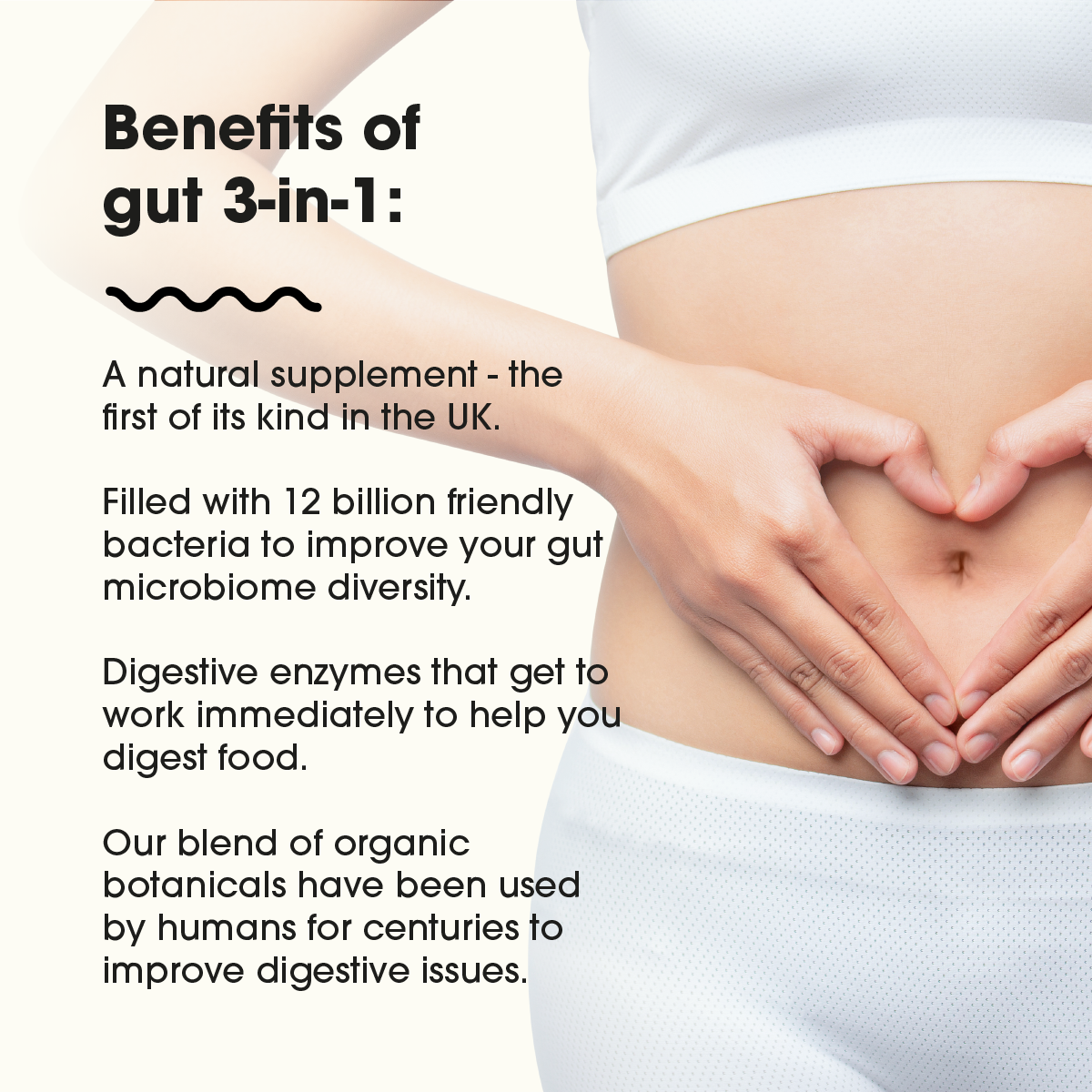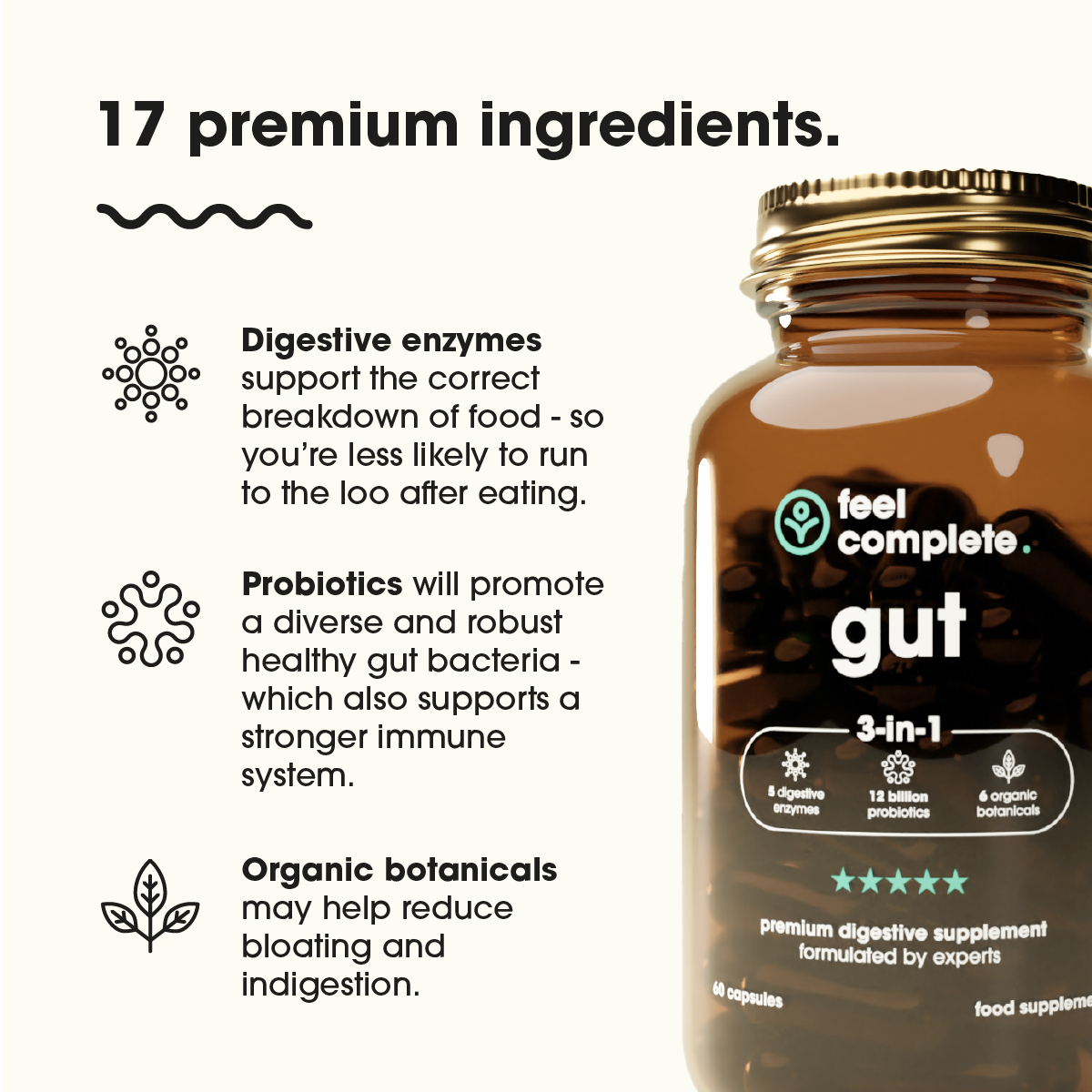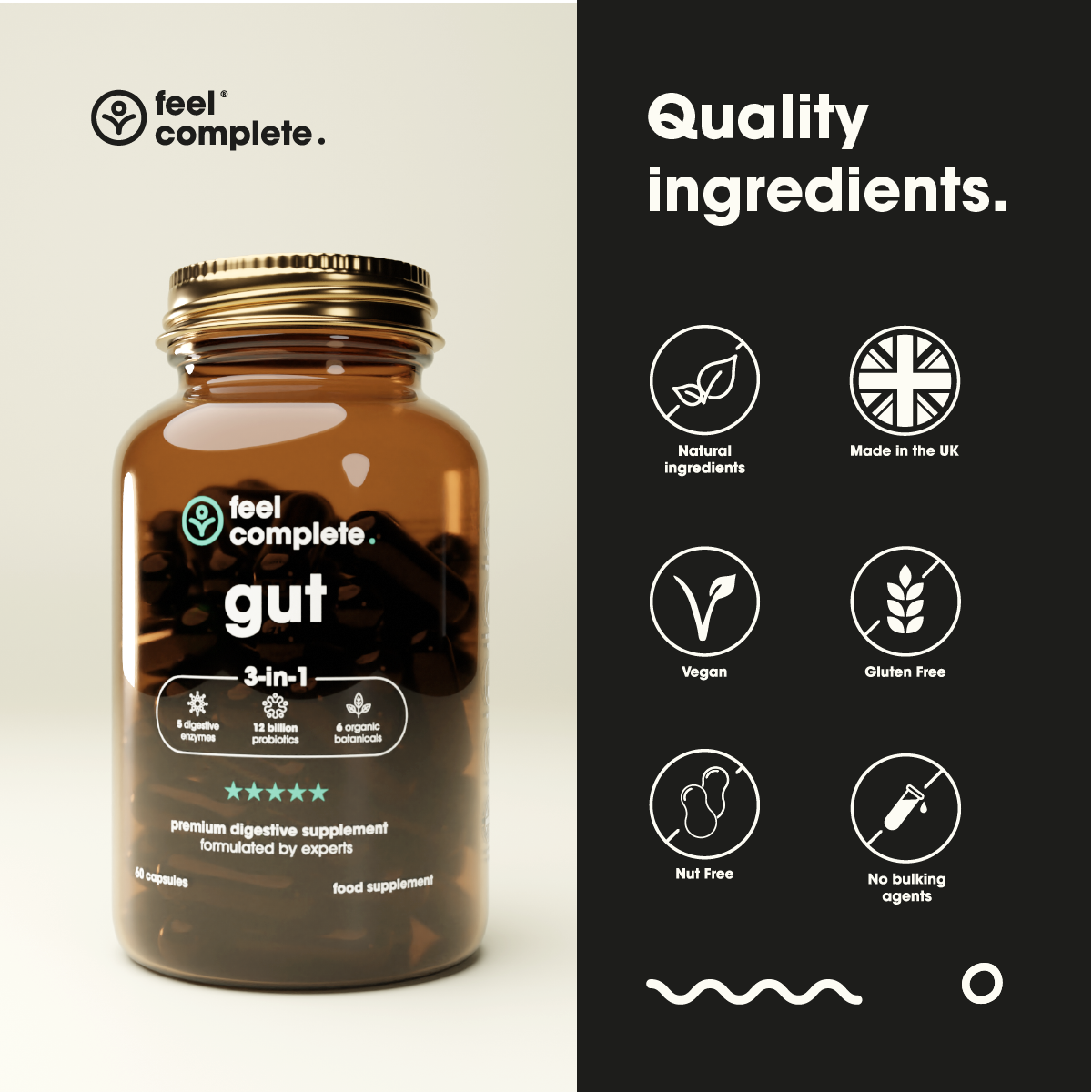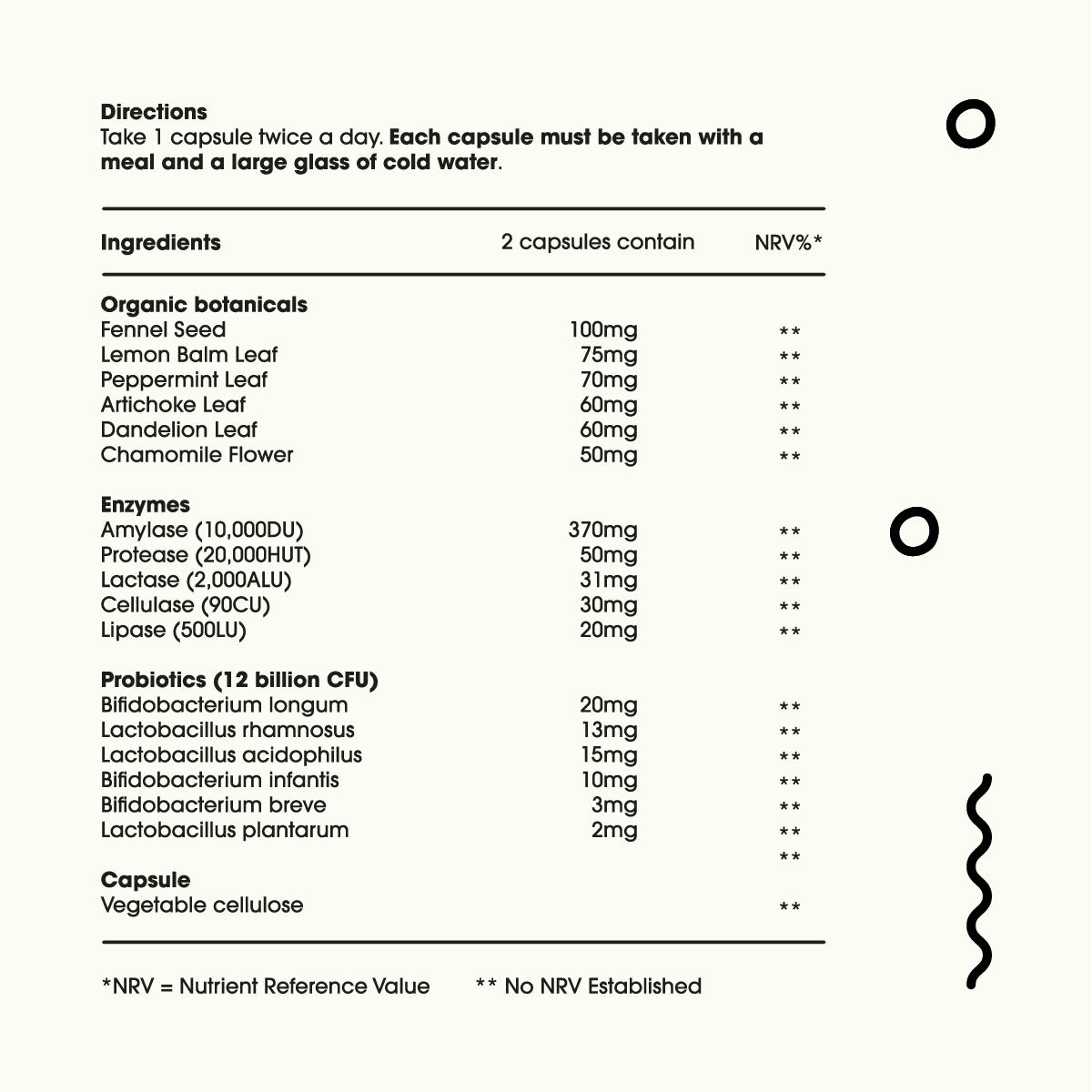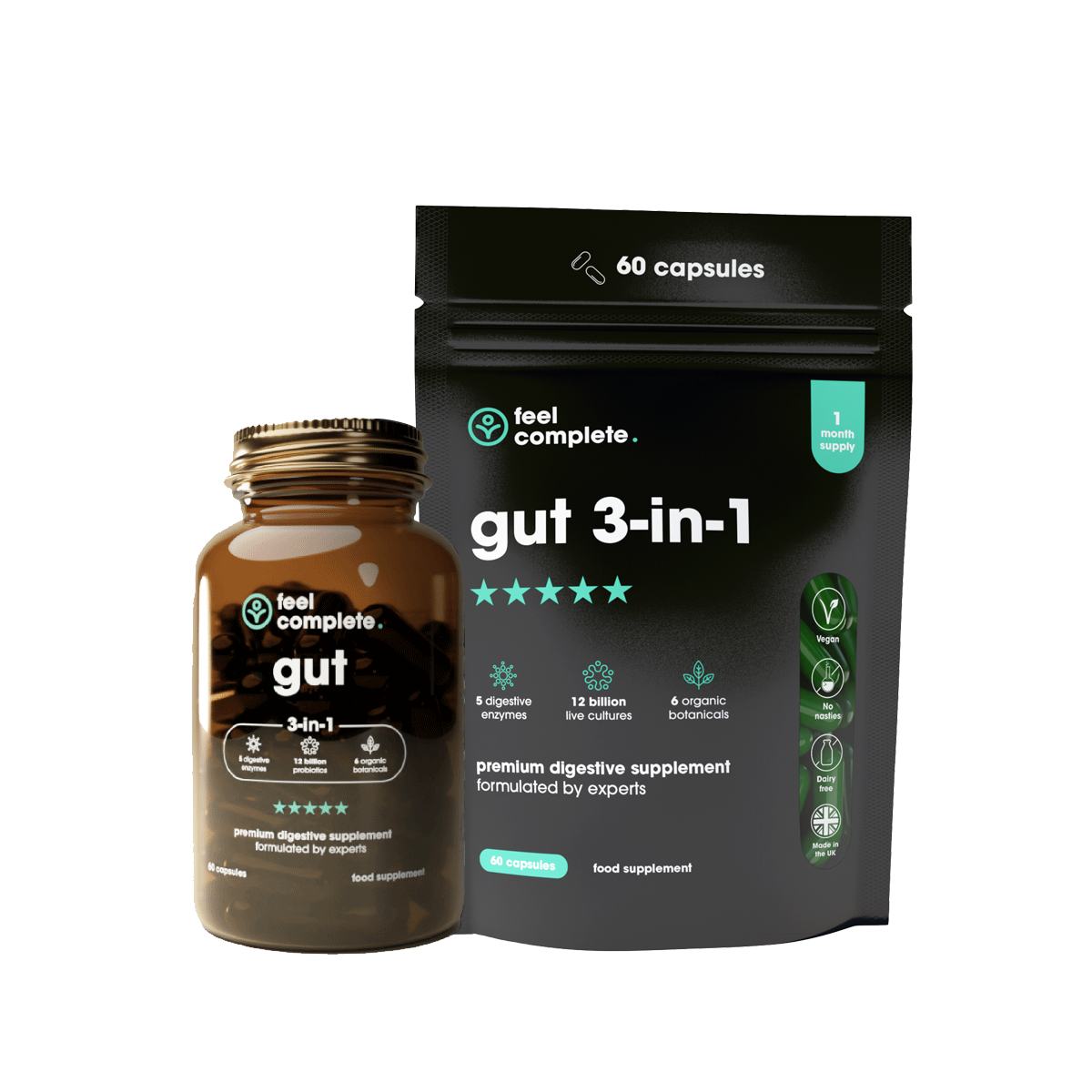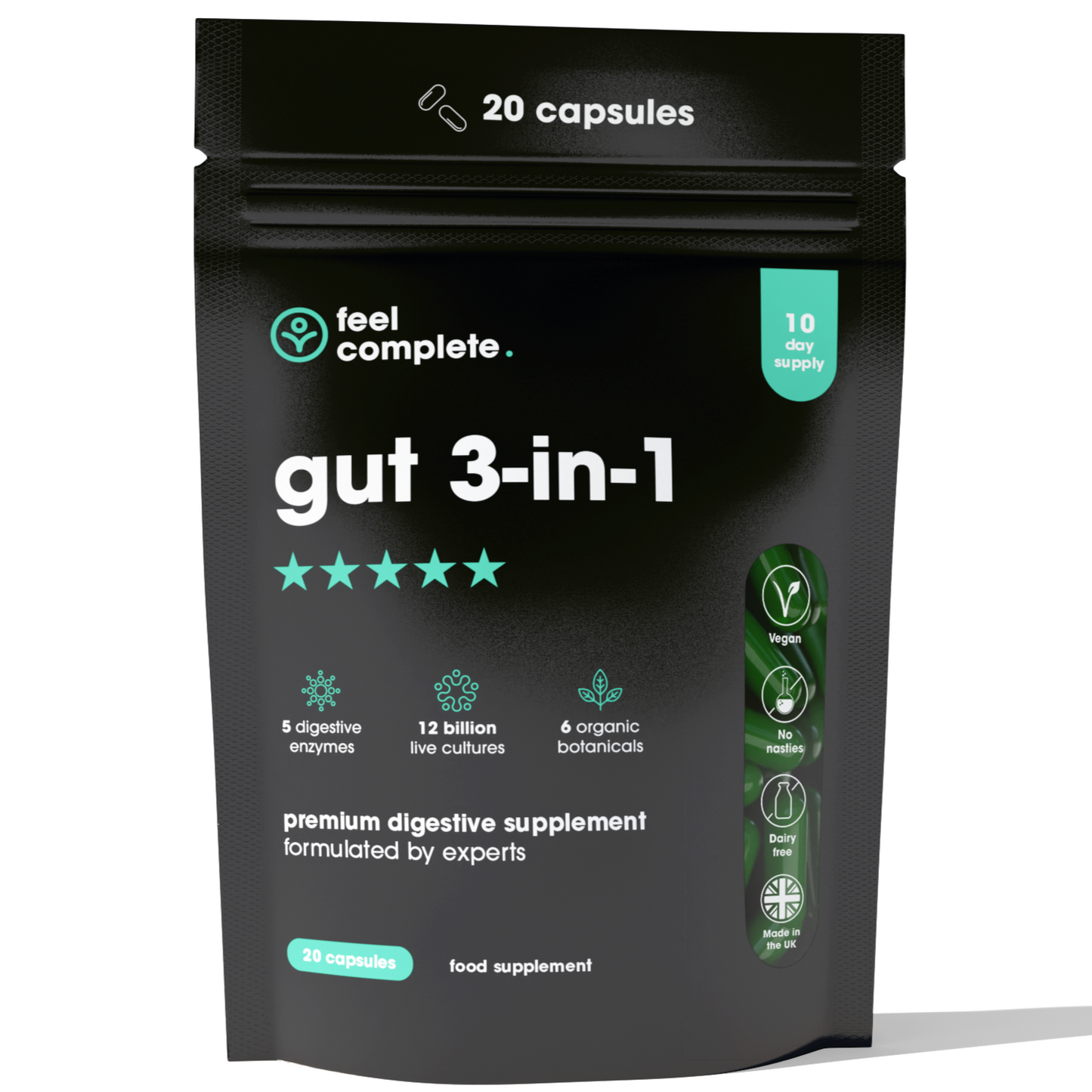Did you know that your gut and brain talk to each other? Known as the gut-brain connection, your gut and brain talk to each other just as you talk to a family member or friend! Before you freak out, let us explain what we mean.
Known as the “second brain,” your gut is closer to your brain and the two are in constant communication. If you’ve ever experienced that “gut feeling” about something, the sensation of “butterflies” in your stomach when you're nervous, or if you’ve felt sick when you’ve had a fright, then you know what we are talking about.
Just like the brain and gut communicate with each other, our mood and mental state are also closely linked to our gut.
So, just how does our gut health play such a pivotal role in our mental health? To explain this, let's take a closer look at the intimate link between your gut and your brain, called the gut-brain axis.
The gut brain axis - what is it?
The gut-brain axis is a powerful two way communication system connecting your brain and your gut. Though your gut and brain may seem distant from each other, these two powerful organs are very closely connected physically by an important nerve called the vagus nerve.
This nerve starts in the brain stem, runs through the chest and down to the abdomen where it connects with millions of nerves throughout the wall of the gut.
Pretty amazing, isn't it?
The gut and brain also communicate through chemicals (neurotransmitters and hormones), which are produced by the brain, gut cells and our gut bugs.
When we're stressed or anxious, for example, our brain triggers our adrenal glands to produce the stress hormones adrenaline and cortisol. These hormones fire up our “”stress mode” or “fight and flight” response. This in turn affects our gut by diverting blood away from it to our muscles and heart.
In short, this natural response shuts down our digestion, which means we can experience constipation or other digestive issues. If you're wondering why blood is diverted from the gut, this is so you can run away from that tiger that is chasing you!
You see, in a real or perceived threat, your body reacts to the immediate (or perceived) danger in the same way. Though most of us are no longer chased by tigers or other predators, the way our body reacts to certain situations (be it a troublesome neighbour, difficult boss, traffic) is the same.
Your gut and mental health
And the same is true for our mood and behaviour. Why? Because it's our gut bacteria that are the key players! Although we do not yet fully understand the complexities of the gut-brain axis, studies show that a healthier, more balanced and diverse gut microbiome improves mood and mental state.
And the opposite is true. If your gut microbiome is imbalanced (known as gut dysbiosis), then your mood can be affected.
So what does a balanced microbiome mean and how does it affect our mood? Great question!
Want your gut and brain to communicate better? Our 3-in-1 gut supplement is formulated with gut supporting and calming ingredients. Grab yours here and feel the difference!
We know there are specific strains of bacteria that are needed for our gut to be healthy. We also know that just like any ecosystem, the more diverse our gut bacteria, the better.
A diverse healthy microbiome produces good amounts of chemicals that act on the brain, called neurotransmitters including a key one called serotonin. A diverse gut microbiome also produces other important neurotransmitters such as dopamine and GABA, which are also known to improve mood.
Serotonin - the “happy hormone”
You may have heard of serotonin being referred to as the “happy hormone.” The reason is that this hormone is connected to how good we feel.
For instance, if our serotonin levels are healthy then we feel calmer, happier and less stressed. Serotonin also regulates our sleep, and digestion. Unsurprisingly, a deficiency of serotonin is linked with depression and anxiety.
So what about antidepressants? We know that people who suffer from depression take antidepressants SSRIs to ease symptoms of depression. Though antidepressants are used as a common treatment for depression, it's important to look at the root cause i.e improving gut health and lifestyle as these imbalances can be a sign of an underlying issue.
So by improving our gut health, we improve our mental health?!
Yes! You can improve your gut health and in turn your mental health by doing the things that feed your gut microbiome and improve diversity.
This will ensure that more mood-lifting chemicals such as Serotonin will be produced. And you already know that serotonin equals happiness!
This is a major breakthrough as research also shows that some cases of depression and anxiety may even be treatable by optimising our gut microbiome.
Though this depends on how moderate or severe someone's symptoms are, there's promising news that the combination of nutrition and support can do wonders.
Take the research from the ‘SMILES’ trials as an example. The study found that there was a great improvement in symptoms with people who had moderate to severe depression symptoms. But what exactly did that involve?
Thanks to 7 individual nutritional consulting sessions delivered by a clinical dietician and with social support protocol given to customers over a 12-week period, the depressive symptoms of these participants improved. This shows us that dietary changes can be a great benefit in mental health disorders.
(1)
Top tips - how to improve your gut health & mental health
Now that you know the connection between gut health and mental health, what you want to do is optimise your diet and lifestyle so you can have a happy gut and a happy brain. Let's take a look at what that looks in action:
Improve your sleep
This is a surprise to many but supporting your sleep will also support your gut microbiome. Research shows that sleep deprivation (this has mixed definitions but it usually means less than 6-7 hours a night) may lead to negative changes to the gut microbiome composition.
(2)
So sleep really can have an impact on gut health. Practise sleep hygiene by having a healthy night routine so you can sleep better. For example, make your room a calm and dark space for sleep, get some blackout curtains or blinds, or wear a good eye mask.
Try soft lighting at night like a salt lamp, and avoid using your phone before bed as this suppresses your sleep hormone called melatonin. Try not to eat or drink too late at night - especially alcohol or anything with caffeine.
Drink a relaxing tea like chamomile before bed or put some lavender on your pillow as it has a calming effect. Lots of instructions, we know. But all these are necessary ingredients for a good night's sleep!
Minimise antibiotics/medications
While these may be beneficial, they do have side effects that impact your gut microbiome and cause irritation in the stomach lining. In the case of antibiotics, for example, it changes the diversity of the gut microbiome and may lead to damage.
Reduce or completely eliminate ultra processed foods
Artificial sweeteners, additives, artificial colours, high fructose corn syrup, high sodium, saturated fats, and low fibre to name a few, make processed foods bad news for your gut. Research shows how these “foods” can disrupt the good bacteria in your gut, and many studies link serious health conditions and premature death to ultra processed foods.
(3)
By swapping ultra processed foods with whole foods and homemade, you will see a HUGE difference in your mood and overall health. Think about the sugar spikes that give you lots of highs and lows (aka false energy), which mess with your mood and energy.
Replace your breakfast cereals with whole oats or eggs and avocados, replace your ultra-processed cookies, cakes, and sweet treats with home baked desserts (with grass-fed butter or coconut oil, spelt flour, etc.) that use natural sweeteners like honey.
Enjoy dark chocolate (at least 70%), a handful of nuts and seeds, and fruits. The healthy and delicious choices are endless!
Avoid extreme diets /yo-yo dieting
These are not fun for anyone, and your mental health and gut bacteria will suffer. The body gets confused when it gets certain foods and then deprived or changed suddenly.
This type of yo-yo dieting also leads to hormone imbalance. Your blood sugar goes wild, which will not help with weight loss. And all this will prevent your gut bacteria from getting what it needs to thrive.
Plant diversity
Your gut loves diversity so work with it by feeding it lots of different colours. Think of a food rainbow on your plate, which will make your meals high in fibre, and high in prebiotics which supports better stronger gut health. The more diverse your plate, the happier your gut.
Movement
By this, we don't mean getting up to grab popcorn between your Netflix episodes! Movement or physical activity should be an essential part of your life for so many reasons.
For one, your gut microbiome loves movement. Brisk walking, jogging, swimming, dancing, climbing stairs (or mountains), hiking, etc. And you know that what your gut loves, the rest of your body (and brain) benefit. In short, movement is key for mental health and overall health.
Those happy endorphins that we get after we’ve worked out can keep us going even through the hardest times. Many studies also confirm this for us, that regular exercise supports reduction in some gut symptoms such as reducing bloating and gas.
And of course, this helps with your mood. Think about it. Have you ever regretted a workout or a walk? We didn't think so!
Learn to manage stress
Did you know that stress is often a huge trigger for gut and mental health issues? This is why it's so important to monitor your stress levels and find ways to reduce and manage stress in your life.
Keep in mind that stress is part of life but what we want to do is reduce the amount of daily stressors we deal with and find healthy ways to manage them when they do come up.
For instance, taking a nice walk can help you reduce your stress levels on some days but on other days, you may want to cook or bake something that makes you happy, exercise, write in a journal, reach out to someone you trust, etc.
The more support, the better
You can do even more to support your gut health by adding fermented foods/probiotics and prebiotics to your diet. These gut-soothing foods will give you more reasons to be happy.
Show your gut some extra love
To give your gut the chance to thrive, consider taking gut health supplements such as probiotics for gut health or digestive enzymes.
Formulated by gut health experts, our gut supplement has been developed with ingredients that are proven to help improve digestive symptoms such as bloating, gas, indigestion, diarrhoea, constipation and abdominal pain.
There you have it! All the ways you can be kind to your gut and in turn, your mental health.
Which of these are you most excited about trying?
Fun fact 1: The gut produces more neurotransmitters (serotonin and dopamine), which govern your mood more than your brain does. 95% of the body’s serotonin is produced in the gut.
Fun fact 2: The gut is sometimes called 'the second brain' and there are more than 100 million nerve endings embedded in the gut wall.






